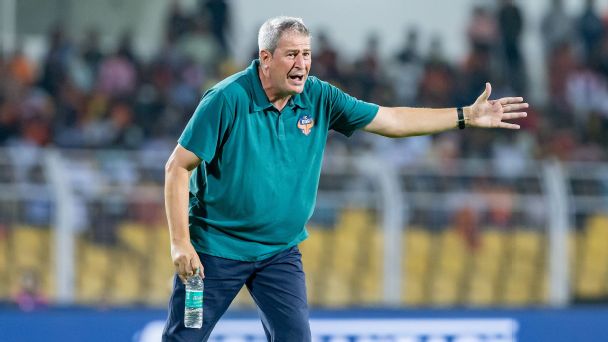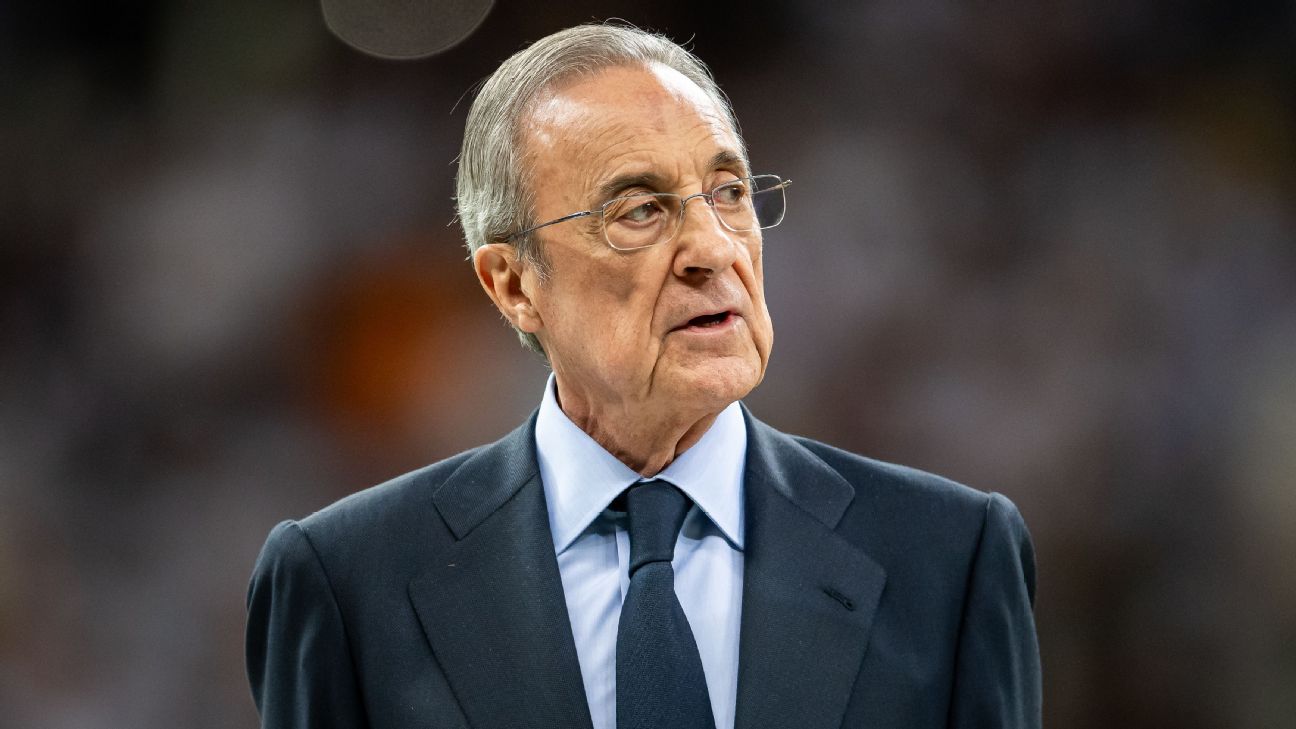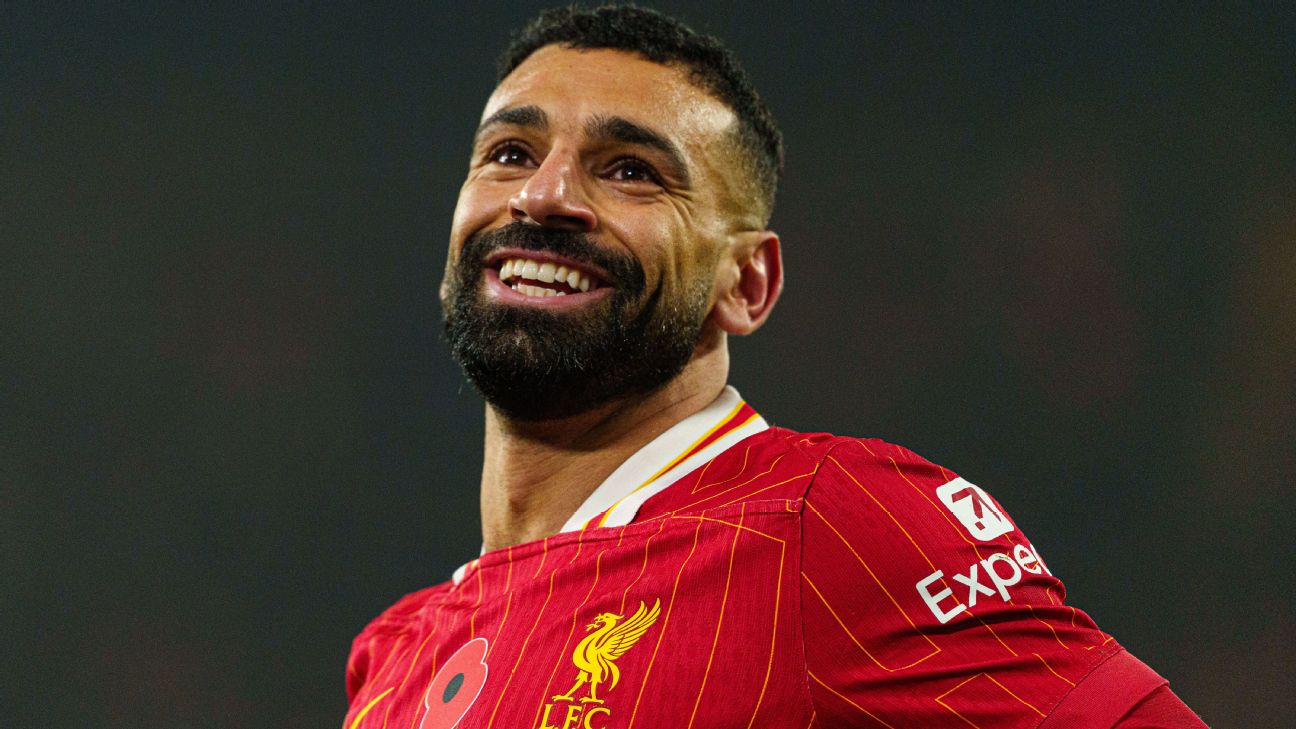The AIFF have appointed Manolo Marquez as head coach of the Indian men’s national team, with the Spaniard taking charge ‘effective immediately’. A complication is that Marquez will remain the coach of FC Goa for the 2024-25 season, with the 55-year-old set to balance duties between club and country.
After the departure of Igor Stimac, and the retirement of Sunil Chhetri, Marquez’s appointment represents a new era for the Indian football team.
How will it go? There’s no crystal ball to rely on, but years of Marquez’s teams in the ISL (Hyderabad FC and FC Goa) are enough to make a prediction. Here’s what his appointment means to Indian football:
The best man for the job
Let’s leave aside the complexities of the role Marquez has chosen to undertake for now. The fact is that he is the best man for the job. In these very pages, Marquez had been dubbed as a ‘pure fantasy’ choice, given his role with FC Goa, but AIFF have made that a reality.
Marquez brings with him a wealth of experience in developing young Indian players. The likes of Liston Colaco, Akash Mishra, Asish Rai, Jay Gupta, Nikhil Poojary and more all blossomed under him in the ISL and went on to feature for the Indian national team. Marquez has never been shy in blooding young players (and sticking with them) – given the generation of Indian footballers coming through, Marquez seems an ideal choice.
He’s already familiar with India’s squad – having either managed them or against them, so is intimately aware of their strengths and flaws. The familiarity extends to his dealings with the Indian football environment – Marquez has dealt with the media with an honesty (bordering on being too blunt) that has endeared him to the press, while also negotiating the backroom pitfalls ever present in Indian football.
He took a club with meagre resources like Hyderabad FC to the pinnacle of Indian football, and his ability to inspire his sides as an underdog is unmatched. Marquez is equally adept at a backs-to-the-wall style of play and front-foot football, which is perfect for the challenges the Indian football team will face in the coming years.
The AIFF had to deal with a lot of applicants for the role, and even ‘bigger’ names like Park Hang-Seo were reportedly in the mix. Putting aside salary constraints, Marquez would’ve still been the better choice over them simply because of his familiarity with Indian football.
The baggage of the Indian football team
Manolo Marquez’s first task will be to replace the 94-goal sized hole in the Indian squad – Chhetri’s departure has left a void, but Marquez has already proved he can adapt to such happenings. Like when Bart Ogbeche’s scoring boots went missing in his final year with Hyderabad, but he still pushed his team to the playoffs. He focused on the collective then, and India will need a similar focus now.
However, that may be easier said than done in the aftermath of Igor Stimac’s sacking. The Indian dressing room was one that was very loyal to the Croatian and there may be fears within of Marquez favouring players who featured under him in the ISL. To give him his due, Marquez has never shied away from dropping under-performing big names, so there is hope that his will be a meritorious dressing room.
India are also coming off some very disappointing results, with an air of divisiveness permeating as Stimac’s reign came to an end. Unity and leadership is the need of the hour, and Marquez has quite the task here.
AIFF’s support
The elephant in the room that’s been ignored until now is the complexity of the role Marquez has undertaken. Club football is a day-to-day grind, and there are very few days off at the top level. To juggle an FC Goa side that will feature in an expanded ISL (now with 13 teams), a Durand and Super Cup as well as an Indian team that will feature in friendlies/tournaments that the AIFF will arrange as well as the AFC Asian Cup qualifiers is quite taxing.
While flitting between club and country is easy enough in FIFA Career Mode, real life isn’t that easy. Marquez will have to switch up between different resources in his backroom staff (and perhaps even different personnel), and if Stimac’s allegations post his sacking are to be believed, Marquez will have to deal with the inefficiencies of AIFF’s operations to boot.
Goa are a settled club doing plenty of things right behind the scenes, which is clearly not the case with the Indian national team. A fiasco like that of the lack of GPS vests before important World Cup qualifiers will not be tolerated by a coach who has those available at club level.
The AIFF have made the right appointment with Marquez, but the potential for it to go pear-shaped remains if the federation’s inefficiencies continue.
Potential Pitfalls
Marquez will be tied up in Goa’s matchday preparations, which will not afford him the time to view other fixtures in person. Yes, he will play each ISL club twice, but the potential for scouting country-wide for emerging prospects will be reduced. Stimac barely attended domestic football in person, and it seems the trend will continue in a reduced way – one doubts Marquez will have the time to even consider players from the I-League.
There’s also the issue of a conflict-of-interest if Marquez prioritizes his Goan players over others – or vice versa. What would an Akash Mishra think if Jay Gupta keeps being picked over him? Or how would a Jay Gupta react back in club football if he’s dropped in favour of Akash Mishra?
Even (the very unlikely) scenario where Marquez may opt to rest his club players in an international window to keep his ISL hopes alive will raise questions. The scenario that Marquez will operate under for the 2024-25 season is littered with these sorts of conflicts and they’ll only serve to undermine him.
While Marquez’s legend in Indian football has grown year-on-year, it’s also revealed that he possesses quite the temper on the touchline. Stimac’s disciplinary issues on the touchline were well known, and a similar outcome with Marquez wouldn’t do his team any favours.The Spaniard can also revert to dour, defensive football if his team is the underdog, which could be a scenario when India go through the AFC Asian Cup qualification cycle. It could turn away potential new fans of the national team.
Nonetheless, despite the complications, Marquez will be keen to bring success to a country he considers his ‘second home’, and that’s arguably enough to not doubt his motivation for the role.
Given his success in the ISL, expectations are high – but so is the caliber of the coach AIFF has appointed. How will it go? Only time will tell.



